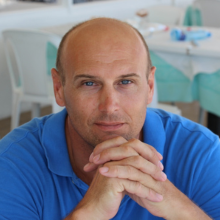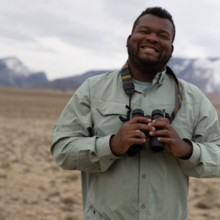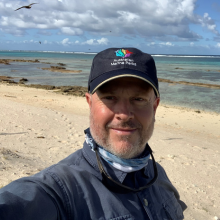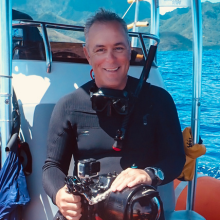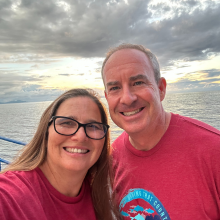Join us for free marine life seminars during REEF Fest 2023! We have a great lineup of guest speakers including scientists, naturalists, and underwater photographers. Seminars are held at the Murray Nelson Government Center (102050 Overseas Hwy. Key Largo, FL 33037.) Please see the detailed schedule below for dates and times.
Seminars are free and open to the public, but pre-registration is requested.
Click here to register for REEF Fest!
Watch Online: For those who are not able to attend in person, REEF Fest seminars will be livestreamed on the REEF Facebook page and YouTube channel.
Seminar Schedule
Friday, Oct. 20
2:30 pm -- Seafood Fraud and the Sustainable Management of Groupers
Presented by Dr. John Claydon, Executive Director, Integrated Marine Biosphere Research
Groupers are highly prized as seafood throughout the world, but for many of the approximately 160 species of groupers, their life-history characteristics make them particularly vulnerable to overfishing. As a consequence, a number of species are endangered, and few populations show signs of recovery. However, the insatiable demand for groupers persists, and this has led to widespread, fraudulent substitution of grouper with other species. In the context of grouper conservation, John will discuss how this grouper mislabelling is yet another challenge to the sustainable management of these species.
4:15 pm -- A Connection to the Sea
Presented by Alex Troutman, NOAA Knauss Fellow with the Fish and Aquatic Conservation Program
We all are connected to the ocean, whether you live in a coastal community or in a landlocked city. Through rivers and streams, clouds and storms, dirt roads and black tops, we are linked by a watershed of creeks and rivers, which eventually lead out to the sea, and our daily lives are surrounded by products that come from or depend on the ocean. Our shared connection to the marine environment means that we should all take part in taking care of and advocating for it, but being an advocate requires opportunities for knowledge and exposure. It is critical to provide an introduction and access to historically-excluded and marginalized communities, who otherwise might not have means to understand the connection that they have to the sea. Alex will share stories of his work in the field and as a connector through science communication.
6:30 pm -- A Journey Through the Science and Management of the Remote and Wild Reefs and Islands of the Coral Sea Marine Park, Australia
Presented by Martin Russell, Manager, Coral Sea Marine Park, Australia
The Coral Sea Marine Park off northeast Australia in the Pacific Ocean is a vast and remote wilderness covering almost 1 million km2, with over 60 uninhabited islands and over 1800 reefs. Martin is the manager of the Marine Park and has two key projects: Coral Reef Health and Island Health Projects. He will talk about these amazing and relatively untouched reefs and islands, including shallow reef dive and deep reef ROV surveys, discovery of new corals and fish, the assessments of seabirds, vegetation and marine debris on islands, and the protection being implemented for the long term.
Saturday, Oct. 21
2:30 pm -- Stickball & Seahorses – A photographic journey
Presented by Jason Belport, Underwater Photographer
Jason will share photographic imagery, experiences, and observations from diving marine ecosystems around the world over the last 25 years. He will share a firsthand account of the challenges and hopes for the marine ecosystems of the Cayman Islands along with some truly unique experiences from Cayman, having been a Cayman resident since 1996. Jason will also share experiences from photographic tours in Fiji, French Polynesia, Raja Ampat, Bonaire, Roatan, Hawaii, Turks and Caicos, and California.
3:15 pm -- 30 Years of Making a Difference for the Oceans
Presented by Christy Semmens, Ph.D., REEF Co-Executive Director: Science and Engagement, and Brice Semmens, Ph.D., Professor, Scripps Institution of Oceanography
July 2023 marks the 30th anniversary of the REEF Volunteer Fish Survey Project. What started with a small group of pioneering ocean enthusiasts taking a slate on a dive in the Florida Keys has resulted in the largest open-access marine life sightings database in the world, now approaching 300,000 surveys conducted by citizen scientists. Each REEF survey submitted truly makes an impact on marine conservation. Today, REEF is considered a worldwide leader in ocean citizen science and the organization's capacity for collaborative partnerships to advance science and conservation is regarded as one of our strongest assets. Christy and Brice were part of the team that helped lay the groundwork in the early days of REEF. In celebration of three decades of making a difference for the oceans, Christy and Brice will share a few of the latest updates with the survey project, as well as REEF's other conservation science programs, the Grouper Moon Project and the Invasive Species Program.
Speaker Bios
